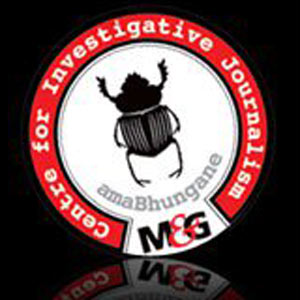The Marikana strike has exposed the soft underbelly of the ANC.
The most you can do – if you have overwhelming superiority – is to buy time. The only way to deal with threatening scenarios is to change the situation, the environment.
That was the genius of FW de Klerk: whatever his motivation, he recognised and acted on the need to change the environment after the apartheid security forces had succeeded in temporarily damping down the political fires of the mid-1980s.
The current state's capacity to deal with "unrest" – complex and hydra-headed political and economic revolt – is way, way below that of the apartheid state. The incompetent management of the scene at Marikana, which led to the wild shooting (and God knows what else), is a manifestation of state weakness, not state power.
This is a state crisis, and the national strategic focus for the foreseeable future needs to be to expose how the capacity of the state to do anything properly has been weakened and to explain how this weakening flows from the political crisis that has created the state crisis.
One key to understanding the Marikana crisis is to realise how the perception of the capacity of the state to act as a reasonably fair re-distributor of wealth and opportunity has broken down.
In a sense this is a global problem, whose crisis we are reaching early because of our weak state and our historic inequalities.
No confidence
The miners of Marikana are making demands directly on the mining companies because there is no confidence that the taxes that mining companies pay will result in a significant improvement in their own lives.
Allied to that, there is a sense that the distance between executive and corporate opulence, on the one hand, and the modest fruits of labour, on the other, is simply too large to be borne.
The crisis in the state – the crisis of our politics – stems from the fact that the model of transformation adopted by the ANC was to use the state, and the broad intersection of politics and business, for a fairly narrow redistributive programme based on political and racial patronage.
The centrepiece of our transformation has not been a major restructuring of the state and the economy to redistribute wealth and opportunity from the rich to the poor – it has been affirmative action and black economic empowerment.
This is understandable: these interventions are easy and their logic is supposedly obvious. But there has been no appreciation that these tools are essentially exclusivity rents: they create artificial centres of profit and come at a price.
They have created a culture – a whole bureaucracy, a whole economy – of rent-seeking and decision-making based on access to and allocation of rents.
Misspending
This has politicised and weakened the bureaucracy and its political management in a million ways, but in ways we still refuse to acknowledge and discuss realistically.
It is not coherent to complain, as the ANC health minister rightly has done, about the misspending of state health resources based on black economic empowerment while at the same time the party damns the Western Cape for lagging on affirmative action numbers. It is not coherent to fail to transform the input numbers through the crisis in black matric results and yet expect the output numbers in management (and elsewhere) to change radically.
So we have a delivery crisis and an inequality crisis.
The national planning committee proposals represent a way out, but they require hard choices to be made, to be politically communicated and to be politically and bureaucratically managed.
Yet the institutional and political authority and expertise needed to implement this programme have been squandered, mainly on the battle for factional supremacy and access to the control of those rents.
Threats
While the spooks and cops and the National Prosecuting Authority, and nearly every other department, have been focusing on supremacy at Mangaung, the threats to the broader system as a whole have been allowed to fester and grow.
The "security" response to the mining revolt is predictable. It is the easiest one. But, as Marikana showed, the capacity of the state to respond in all but the most crude fashion in the security arena is very limited. And such a response carries – as Marikana also showed – the risk of massive unintended consequences.
It may be necessary to rattle sabres to "restore order" – but unless there is a commitment to change the environment, to change the whole game, then the drift to a cycle of authoritarianism and crisis will continue. The higher food costs and further social dislocation that will come in the next decade because of global warming will only accelerate this process.
Thanks to Marikana, the stakes at Mangaung just got much, much higher for all of us. We will not get too many more chances for the peaceful change of not merely a bankrupt leadership, but also a broken paradigm.
Sam Sole is the joint managing partner of AmaBhungane
* Got a tip-off for us about this story? Email [email protected]

The M&G Centre for Investigative Journalism (amaBhungane) produced this story. All views are ours. See www.amabhungane.co.za for our stories, activities and funding sources.